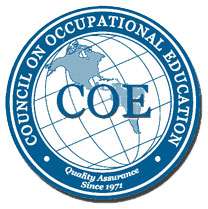The need for home health and personal care is increasing in the US, and employment in this field is expected to grow by 33% between 2020 and 2030.
The healthcare industry is one of the most important in our society, and the individuals who make up this workforce need to be prepared for everything that comes their way. Being a nurse assistant/home health aide isn’t easy, so it’s vital to know what kind of person can actually succeed in such a role.
This starts with having the right qualifications and experience, but it takes more than that. There are certain skills that a nursing aide must have if they want to do things right.
So what are these vital nursing assistant skills? Let’s take a look.
1. Empathy
This is one of the most important skills that a nursing aide can have. Anyone dealing with those who need care should be empathetic and compassionate at all times.
Patients might be vulnerable and having a difficult time. They may be dealing with pain, illness, distress, confusion, and various other issues. You need to be able to show that you genuinely care about them and what they’re going through.
This isn’t just for when you’re dealing with patients but when dealing with their families. It can be difficult to see a loved one suffering, so you need to be empathetic to their situation. On the surface, it may seem like a nursing assistant only provides physical care, but emotional care can be just as important.
2. Communication Skills
Effective communication is important in a lot of lines of work, but perhaps more so in nursing jobs. It’s essential that you can communicate with patients, families, and other healthcare workers.
Not only do you need to be able to explain things to them clearly, but you need to be able to understand your patient’s needs. Any updates that you need to give to other healthcare workers must be clear and accurate to make sure everyone is on the same page.
This will help ensure your patients get the care they need at all times. Additionally, being attentive to your patients will help create a more comfortable environment.
3. Attention to Detail
A typical personal care assistant will have a lot of responsibilities. This includes administering medications, taking vital signs, and assisting with daily activities. Mistakes can result in major problems, so you need to pay attention to even the smallest details.
This is vital to ensure patient safety. When administering medication, a small error in the dosage amount or medication type could be disastrous.
Make sure you focus on everything you’re doing at all times. This will allow you to reduce the risk of mistakes and provide the best level of care.
4. Patience and Flexibility
Working in healthcare means that there will be times when you have to deal with unexpected challenges. It’s a very unpredictable line of work, so a patient care technician needs to be able to adapt when things don’t go quite as they should.
If you’re working with a patient who is distressed, confused, or in pain, they may behave erratically. When this happens, you need to keep a clear head. The best nursing assistants can adapt to different situations as and when they arise.
This could be due to a change in the patient’s behavior or condition, and you may need to react quickly to ensure nothing goes wrong. Sometimes, it can be as simple as adapting to changes in your tasks or schedule. Whatever it is, being able to stay calm and flexible will help you deal with any problems that come your way.
5. Teamwork
While there will be times when you’re working alone, healthcare is a very collaborative field. All professionals in this industry need to be able to work together to provide quality care to patients. Different professionals give different types of care, so a patient may need assistance from multiple workers.
If you can work well with others, you’ll be able to ensure patients get the comprehensive treatment they need. This ties back to having excellent communication skills, as you may need to work with doctors, nurses, physical therapists, and other support staff to assist a patient.
It’s vital that you’re willing and happy to work with others. You also need to be able to follow instructions when given.
6. Problem-Solving Skills
As we’ve mentioned above, there can be all kinds of unexpected situations that may come up when working in healthcare. One of the most important home health aide skills that’s vital here is problem-solving.
Issues will inevitably come up from time to time. You need to be able to tackle these problems head-on while keeping your cool.
This could be something as minor as finding a solution when a patient is uncomfortable, or as serious as a life-threatening emergency. Being able to think critically and make well-informed decisions on the spot can help in all kinds of situations.
7. Physical and Emotional Resistance
Many people don’t realize it, but working in the healthcare industry can be incredibly demanding, both physically and emotionally. Being able to deal with this is vital if you don’t want your work to chip away at you.
There may be days when you find yourself rushing about non-stop, spending hours on your feet, helping to lift and move patients, and more. You need to maintain a good level of physical fitness to be able to keep up with this.
There can also be a lot of emotionally challenging situations. You’ll be dealing with patients who are suffering, and this can be very emotionally taxing.
If you’re having a difficult time, don’t be afraid to seek support from colleagues and supervisors. It can also be a good idea to practice stress-management techniques so you can deal with these challenges more effectively.
Pursuing a Career as a Nurse Assistant/Home Health Aide
Working as a nurse assistant/home health aide isn’t easy, but it’s incredibly rewarding. If you have the right skills and characteristics, you can help people who really need it and make a difference.
Healthcare Career College is dedicated to providing career-focused training to aspiring healthcare workers. We’ve helped guide thousands of students to success for more than three decades. Take a look at the programs we have available today.



